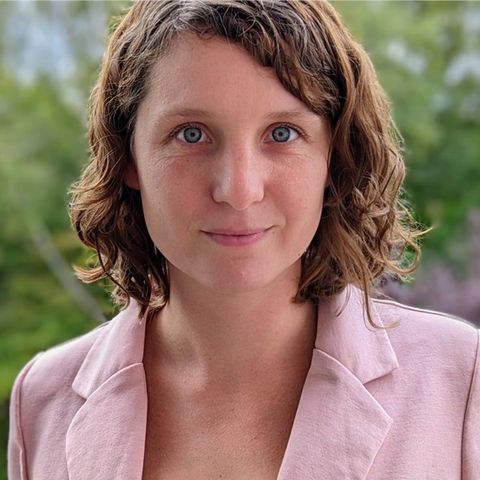Aims and Scope
Clinical workflows are increasing data-driven. Medical data, including imaging, is routinely employed to track the progression of disease or to assess response to treatment. For example, patients with cancer are often followed up longitudinally using radiological imaging (e.g., CT/MR/PET) to identify and track lesions, and assess treatment response. Recent developments in AI and machine learning have shown promise in automating or improving parts of the clinical workflow, from being able to find lesions in various organs, to classification and diagnosis of diseases. Unfortunately, despite the key role of serial imaging in the clinical workflow, developing AI systems that can track or model disease progression by learning from and exploiting longitudinal imaging has not received much attention until recently. Besides their role in the everyday clinical workflow, such models can enhance biological understanding of diseases to shape prevention and intervention strategies, inform clinical trial design, and support clinical decision making, such as patient diagnosis and prognosis.Therefore, in this workshop, we solicit submissions which adhere to the general theme of tracking and modeling disease progression with imaging and/or multimodal data.
The following area is of particular interest: Cancer and concomitant diseases, where possible themes include tasks, such as detection, classification or segmentation of lesions or other abnormalities with or without multiple time points, combining imaging with other multi-modal data (e.g. radiology reports, electronic medical records), combining imaging and large language models (LLMs) to identify and track findings and disease status over time as well as mechanistic models.
The workshop is not limited to the above disease areas and we welcome submissions related to other diseases or applications as well. While the focus is on longitudinal data, we also welcome submissions which perform DPM with cross-sectional data. Finally, we also welcome and encourage submissions related to new datasets that can enable the research of tomorrow.
The scope of the conference includes, but is not limited to:
- Detection, classification, segmentation of abnormal anatomical structures. Areas of interest include, but are not limited to the following: lesions, tumors, lymph nodes, neurodegenerative changes etc.
- Disease progression modeling
- Longitudinal data analysis
- Follow-up assessment
- Disease tracking and outcome prediction with longitudinal and/or multi-modal data
- Surgical and Computer-Assisted interventions to determine/track changes
- Histopathological analysis and change tracking over time
- Image registration of longitudinal series for subsequent assessment
- Multi-modal data fusion for detection, diagnosis, and image-guided interventions
- New datasets and metrics
Call for Papers
CMT submission website. The Microsoft CMT service was used for managing the peer-reviewing process for this conference. This service was provided for free by Microsoft and they bore all expenses, including costs for Azure cloud services as well as for software development and support.
We solicit submissions consistent with the aims and scope of the workshop. The following types of submissions will be accepted:
- Full Papers: We encourage the submissions of full-length papers (upto 10 pages excluding references) describing new work that has not been previously published or accepted for publication. Accepted papers will be presented as orals.
- Short papers or abstracts (upto 3 pages) that are summarized versions of accepted manuscripts from MICCAI main conference: We also invite authors of an accepted manuscript at MICCAI which is of interest for our workshop to present their work in an oral presentation at our workshop to strengthen the community around this topic.
Camera ready paper submission
The camera-ready version of the paper should be a maximum of 10 pages of main text + 2 pages of references (total of 12 pages). Please make sure the final version contains full author names, affiliations, acknowledgements, funding information, and any necessary disclosures. Also please make sure to remove any blinding or anonymization within the main text. Supplementary material is not allowed. Please follow the MICCAI 2025 main conference guidelines for the camera-ready submission, which can be found here..
Authors of accepted papers will be required to sign a License to Publish form. The License to Publish form needs to be signed by the corresponding/senior author on behalf of all the authors. The corresponding author signing the copyright form should match the corresponding author marked on the paper. Conference Name (i.e., LMID 2025) and the Volume Editors' Names are already entered for you at the first page, where you need to fill in the title and names of the all authors and corresponding authors of your paper. This form must be signed in wet-ink. Digital signature is not acceptable. Please scan your signed form and save it as a PDF file (file name format: LMID2025_License-to-Publish_PaperID.pdf, where PaperID is the numeric ID of your paper) and upload it to the CMT system.
The corresponding author must be available to carry out a final proof check of the typeset paper before publishing in the LNCS proceedings. He or she will be given a 72-hour time-slot to do so. If the corresponding author does not respond within the timeslot given, the paper is automatically considered approved. The publisher will not accommodate any late correction requests. The corresponding author should be clearly marked as such in the header of the paper. He or she is also the one who signs the license-to-publish form on behalf of all of the authors. Please note that the corresponding author cannot be changed after the camera ready submission deadline. We encourage the inclusion of all of the authors’ email addresses in the header, but at the very least, the email address of the corresponding author should be present.
Important Dates
All deadlines are 23:59 UTC-12/Anywhere on Earth (AoE)- Full paper submission deadline:
June 25, 2025July 2, 2025 - Short paper or abstract submission deadline:
July 1, 2025August 1, 2025 - Notification of paper decisions: July 16, 2025
- Camera Ready paper submission: July 30, 2025
- Notification of acceptance (abstracts): August 20, 2025
Keynote Speaker

Dr. Kyu Sung Choi
Assistant Professor, Department of Radiology, Seoul National University Hospital
Beyond a Still Shot: Why Longitudinal Imaging and Clinical Context Matter
Agenda
All papers are to be presented orally. The presentation time is a total of 9 minutes + 2 minutes for questions.| Time | Session |
|---|---|
| 1:30 PM - 1:35 PM | Welcome and Introduction |
| 1:35 AM - 2:20 PM |
Keynote 1
Dr. Kyu Sung Choi |
| 2:30 PM - 2:42 PM |
SSL-AD: Spatiotemporal Self-Supervised Learning for Generalizability and Adaptability Across Alzheimer’s Prediction Tasks and Datasets
Emily Kaczmarek |
| 2:42 PM - 2:54 PM |
Two-Stage Decoupling Framework for Variable-Length Glaucoma Prognosis
Yiran Song |
| 2:54 PM - 3:06 PM |
Memorisation bias: AI predictions for data contributors are biased towards their health states in the training data
Moritz Knolle |
| 3:06 PM - 3:18 PM |
Semi-Disentangled Spatiotemporal Implicit Neural Representations of Longitudinal Neuroimaging Data for Trajectory Classification
Agampreet Aulakh |
| 3:18 PM - 3:30 PM |
Improving Virtual Contrast Enhancement using Longitudinal Data
Pierre Fayolle |
| 3:30 PM - 3:35 PM |
CXR-TFT: Multi-Modal Temporal Fusion Transformer for Predicting Chest X-ray Trajectories
Mehak Arora |
| 3:35 PM - 4:00 PM | Coffee Break |
| 4:00 PM - 4:12 PM |
Spatio-Temporal Conditional Diffusion Models for Forecasting Future Multiple Sclerosis Lesion Masks Conditioned on Treatments
Brennan Nichyporuk |
| 4:12 PM - 4:24 PM |
Mechanistic Learning with Guided Diffusion Models to Predict Spatio-Temporal Brain Tumor Growth
Daria Laslo |
| 4:24 PM - 4:36 PM |
Longitudinal Brain Segmentation with Temporal Consistency for Neurodegenerative Analysis
Sheikh Adilina |
| 4:36 PM - 4:48 PM |
Unstable Prompts, Unreliable Segmentations: A Challenge for Longitudinal Lesion Analysis
Niels Rocholl> |
| 4:48 PM - 5:00 PM |
AI-based response assessment and prediction in longitudinal imaging for brain metastases treated with stereotactic radiosurgery
Lorenz Kuhn |
| 5:00 PM - 5:12 PM |
Scalable Modeling of Nonlinear Network Dynamics in Neurodegenerative Disease
Daniel Semchin |
| 5:12 PM - 5:24 PM |
CLIP-KOA: Enhancing Knee Osteoarthritis Diagnosis with Multi-Modal Learning and Symmetry-Aware Loss Functions
Yejin Jeong |
| 5:24 PM - 5:30 PM | Closing Remarks |
Organizers

Clinical Center, Bethesda, USA

and Fraunhofer MEVIS, Germany

Clinical Center, Bethesda, USA

Bethesda, USA

Clinical Center, Bethesda, USA

South Korea

New York, USA.
